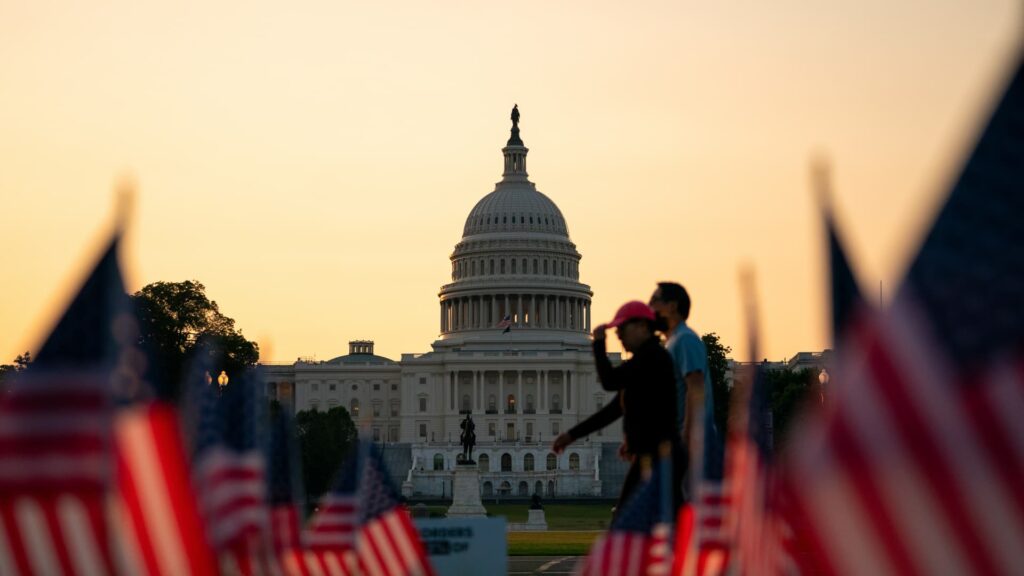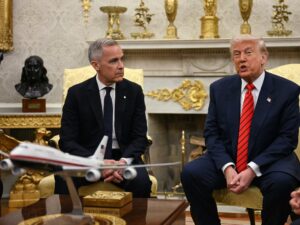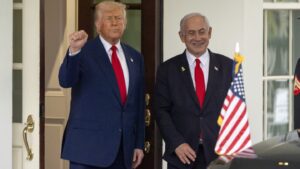
The U.S. Capitol in Washington, D.C. stands as a backdrop to a heated debate over President Donald Trump’s latest legislative endeavor, the One Big Beautiful Bill Act (OBBBA). Passed narrowly in the Senate with a 51-49 vote late Saturday, the bill is now a step closer to becoming law. Despite its controversial nature, several banks have voiced support, claiming it could invigorate the U.S. economy.
The American Bankers Association (ABA) expressed its endorsement in a letter published on Sunday, highlighting the “much needed tax relief” the bill promises. According to David Seif, Nomura’s chief economist for developed markets, the OBBBA could be beneficial in the short term, especially as many provisions from the 2017 Tax Cuts and Jobs Act are set to expire by the end of 2025, potentially leading to increased taxes.
Economic Context and Implications
The 2017 Tax Cuts and Jobs Act, a hallmark of Trump’s presidency, introduced lower income tax rates, expanded child tax credits, and increased business deductions. However, without Congressional intervention, these benefits will lapse, potentially curtailing household spending and corporate investment. The OBBBA aims to renew these expiring provisions, thereby averting a severe fiscal contraction in 2026.
Seif elaborated on the bill’s impact, stating,
“The most important thing OBBB does for the next few years is renew most of those expiring tax provisions, preventing a major and sudden fiscal contraction from occurring.”
He also noted that provisions allowing for faster business expensing of capital investments could stimulate investment in the near term, although this might come at the expense of future investments.
Support from Financial Institutions
Citi strategists echoed this sentiment in a note released last Wednesday, suggesting the bill will serve as an economic catalyst. They anticipate that the combination of new trade deals and the bill’s passage will enhance growth sentiment.
“In the near term, trade deals (UK, China, eventually Japan, India, Europe, etc) and the passing of the (net stimulatory) Big Beautiful Bill in July should improve growth sentiment,”
they wrote.
Citi also predicts that the Federal Reserve may adopt a more accommodative monetary policy, further supporting economic growth. They dismissed concerns about a potential “bond vigilante moment” in 2025/2026, attributing the bill’s funding largely to tariff revenues.
Concerns and Criticisms
Despite the optimism from financial institutions, the OBBBA has not been without its detractors. Credit agencies have issued warnings about the bill’s potential to exacerbate the federal deficit. Critics argue that the bill’s benefits may be short-lived and could lead to long-term economic challenges.
Moreover, the bill’s sweeping tax reforms and targeted incentives have sparked debate about their effectiveness and fairness. Some economists caution that while the bill may provide temporary relief, it could also create fiscal imbalances that might require future corrective measures.
Looking Ahead
As the OBBBA moves closer to the President’s desk, its potential impact on the U.S. economy remains a topic of intense discussion. Supporters argue that it offers a necessary boost in the face of expiring tax provisions, while opponents warn of the fiscal risks it entails.
The coming months will be crucial in determining the bill’s fate and its eventual effects on the American economic landscape. As lawmakers and financial experts continue to debate its merits, the OBBBA stands as a testament to the complexities of fiscal policy in a rapidly changing economic environment.




